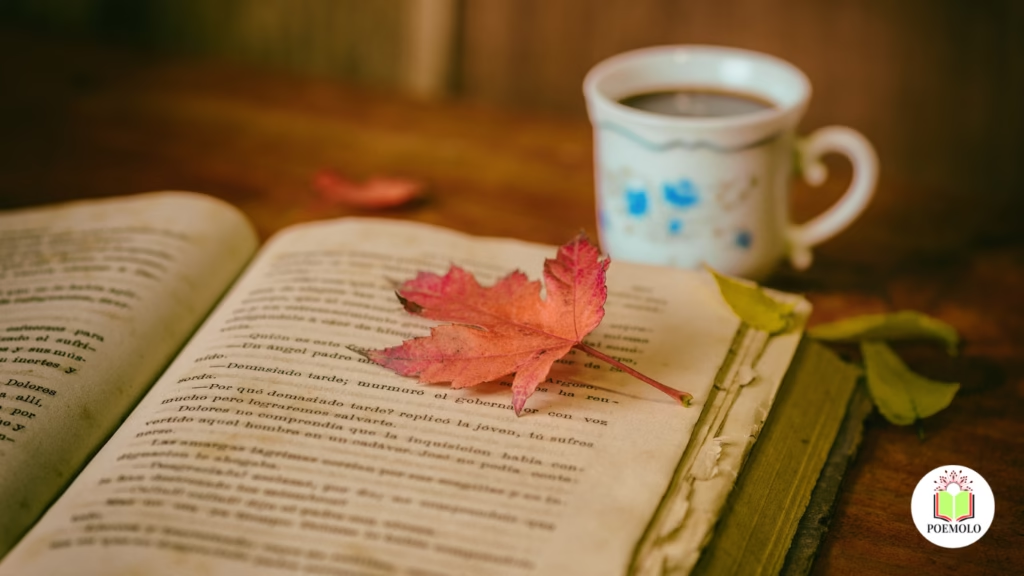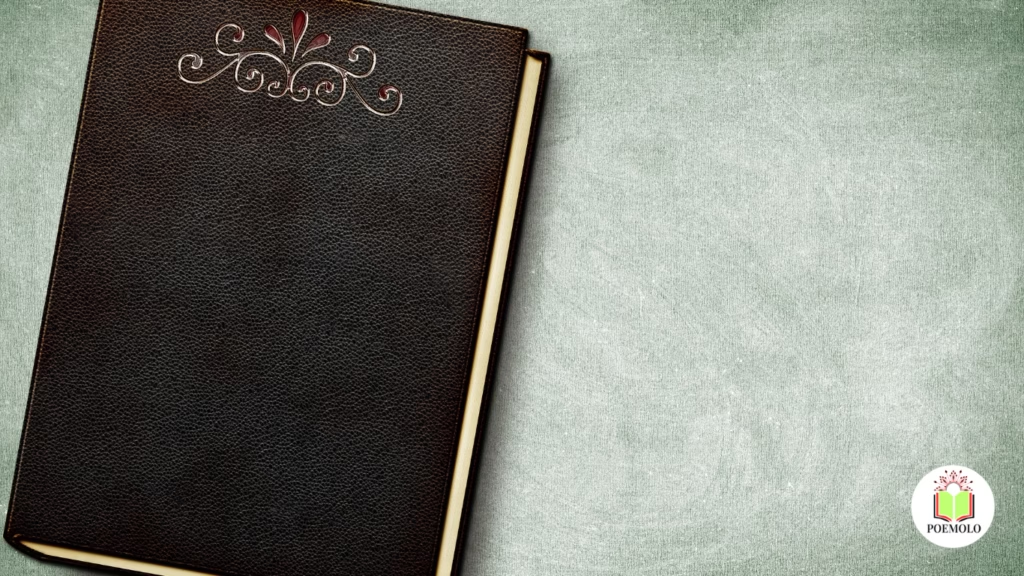Books have long been a source of inspiration for countless writers, artists, and thinkers. The act of reading a book is not just about attention information; it is about entering new worlds, experiencing emotions, and exploring ideas that transcend the mundane.
For many, the love of books turns into a deeper connection, one that is reflected through art in various forms. One of the most profound ways books influence creativity is through poetry. When a poet writes about a book, it’s often an expression of their connection to the text, the emotions it stirred, or the insights it provided.
In this article, I will explore the magic that books and poetry share, the themes they both feeling, and why poets are so drawn to write about the written word. From the emotional landscapes books create to the role they play in shaping identities, this article will examine why books and poetry form such a timeless bond.
The Art of Writing Poetry about Books

Poetry is an art form that captures emotions, ideas, and experiences through words. It’s often rich in imagery, rhythm, and symbolism, making it a natural medium for expressing the deep feelings that books provoke in readers.
Writing poetry about books is not just an intellectual exercise; it’s an emotional one. When a poet writes about a book, they’re often reflecting on the way the text made them feel, the impact it had on their worldview or the nostalgia and connections it triggered.
The Power of Literature to Stir Emotion
Books have a unique ability to stir emotion in readers. The words on a page are not just informational; they carry weight, feeling, and resonance. Whether it’s the joy of discovering a new world, the grief of finishing a beloved story, or the bittersweet nature of a coming-of-age tale, books evoke a wide range of emotions.
In turn, poets use their craft to articulate these emotions, transforming them into words that resonate with others.
The magic of writing poetry about books lies in this transformation—turning the raw emotion of reading into something that can be shared and appreciated by all.
A Poet’s Journey with Books
Many poets develop a deep personal connection with books. The narratives, characters, and messages within books often shape their understanding of the world and themselves.
Writing about books becomes a way of honoring the influence literature has had on their personal journey. Books help shape identity, challenge viewpoints, and open doors to new ways of thinking. Poetry allows the poet to express these transformative experiences, creating a bridge between their inner world and the external literary one.
The Relationship between Books and Imagination
One of the most significant aspects of books is their ability to spark the imagination. When we read, we are transported into worlds that are different from our own. The act of reading is an imaginative exercise in itself, as it requires us to visualize characters, settings, and events. Poets, particularly those who write about books, often tap into this imaginative energy and weave it into their verses.
Books as Catalysts for Imagination
When we pick up a book, we are inviting our imaginations to run wild. Every word, every sentence is a potential door to a new reality. This ability to escape into fictional realms is one of the primary reasons books have been an inspiration for so many poets.
For poets, books are more than just stories—they are entire worlds waiting to be explored. Writing poetry about books allows poets to capture the essence of those worlds, drawing readers into the same imaginative space that the poet once inhabited while reading.
The Influence of Different Genres on Poetic Expression
Books come in many genres, and each genre carries its own unique flavor of imagination. The fantastical realms of science fiction, the depth of historical fiction, or the raw emotion of a memoir can all serve as powerful sources of inspiration for poetry.
Different genres different feelings, which in turn influence how poets express their thoughts and emotions. For example, a poet writing about a fantasy novel might use vivid, dreamlike imagery to convey the wonder of the fictional world, while a poet reflecting on a memoir might adopt a more intimate and introspective tone to capture the personal connection they feel with the narrative.
The Role of Books in Shaping Identity
Books are more than just stories or information—they help shape our identity. From childhood to adulthood, the books we read influence how we see ourselves and the world around us. Whether it’s the stories that we connect with or the knowledge that we gain, books are integral to the process of self-discovery and growth.
Books as Mirrors of Our Lives
Books often serve as mirrors, reflecting the complexities of human life. Whether it’s through the characters’ struggles, triumphs, or moral dilemmas, books allow readers to see aspects of them reflected in the text.
This is especially evident in poetry about books, where the poet takes their personal experiences with literature and reflects them in their verses. Books provide an avenue for introspection, helping readers identify with the characters and themes explored within the pages.
By writing poetry about books, poets reflect not just the essence of the book but also their own understanding of the world and their place in it.
Books and Self-Discovery through Poetic Expression
In many ways, poetry about books is an extension of the self-discovery process that reading ignites. Many poets, especially those writing about books that have had a significant impact on their lives, use their verses to explore how those books helped shape their views, beliefs, and identities.
These poems often offer insights into how books guide personal growth and development. For poets, books become more than just external sources of knowledge—they are part of the inner landscape of self-reflection.
The Therapeutic Power of Books
Reading is often considered a form of therapy. Books allow readers to escape, reflect, and, in some cases, heal from emotional wounds. This therapeutic aspect of books is explored through poetry, as poets tap into the healing qualities of literature to express emotions such as grief, hope, and resilience.
Books as Healing Tools
In the same way that books help individuals process their emotions, poetry about books also serves as a therapeutic outlet. Many poets write about books that helped them through difficult times, and their poetry becomes an expression of gratitude and healing.
Whether it’s a self-help book that changed their perspective or a novel that provided comfort during a challenging period, poets often credit books with their ability to process emotions and find solace. Through poetry, poets share this experience, making it possible for others to find comfort in the same way.
The Beauty of Books Through Poetry

Books, in their essence, are beautiful. The tactile experience of holding a book, the smell of its pages, and the feel of its cover— all these sensory experiences make books a unique form of art. Poetry about books often captures this beauty, expressing the wonder that books bring to our lives.
Capturing the Sensory Delight of Books
Poets frequently focus on the sensory aspects of books in their poetry. They write about the sound of pages turning, the smell of a well-worn book, or the visual beauty of the cover design.
These sensory details help bring the abstract connection between reader and book to life, emphasizing how books are not just intellectual objects but also physical experiences that stir our emotions. Poetry about books, in this sense, enhances the reader’s awareness of the magic that books bring to our everyday lives.
Books as Teachers: The Educational Influence
Books are essential sources of knowledge and education. They are tools that shape our understanding of the world, impart wisdom, and expand our intellectual horizons. Many poets write about how books have influenced their learning, often reflecting on the deep lessons they’ve gained from literature.
Books as Sources of Wisdom
Books offer more than just stories; they offer insights into human nature, history, and society. Many poems written about books express the wisdom that can be gained from literature.
Poets write about the life lessons they’ve learned from their favorite books, and these lessons often become the foundation for the poetry they create. Books provide intellectual nourishment, and poets often seek to share the wisdom found within those pages through their own poetic works.
The Joy and Nostalgia of Reading: A Poetic Celebration
For many, reading is a joyful and nostalgic activity. It brings back memories of childhood, of escaping into new worlds, and of discovering stories that left a lasting impression. Poetry about books often reflects this sense of nostalgia, celebrating the joy that books bring into our lives.
The Sentimental Connection to Books
Poetry about books often contains an element of sentimentality. The act of reading a beloved book can bring back memories of past experiences and emotions. Poets who write about books often tap into this sense of nostalgia, reflecting on the joy and comfort that reading provides.
Whether it’s remembering the excitement of a first read or revisiting an old favorite, poetry helps capture the timeless bond between reader and book.
Conclusion: The Timeless Connection Between Books and Poetry
The relationship between books and poetry is profound, deep, and multifaceted. Books inspire poets to write, offering both emotional and intellectual nourishment. Through poetry, we see the lasting impact that books have on our lives—how they shape our identities, evoke emotions, and spark our imaginations.
The beauty of poetry about books lies in its ability to transform our reading experiences into something even more meaningful, offering readers a chance to reflect on the power of literature.
FAQs
- Why do poets write about books?
Poets write about books to express the emotional and intellectual impact these works have had on their lives. It allows them to reflect on the experiences, lessons, and connections they’ve gained from reading.
- How does poetry about books deepen the reading experience?
Poetry about books offers a different perspective on the stories and emotions books evoke, providing readers with deeper insights and allowing them to reconnect with their own feelings about the text.
- Can poetry about books inspire new readers?
Yes, poetry about books can help spark interest in literature, encouraging readers to explore books they may not have considered before.
- How do books influence personal growth, according to poetry?
Books offer lessons, reflections, and perspectives that help individuals grow. Poets often reflect on how books have influenced their personal development, identity, and worldview.
- What makes books a source of healing in poetry?
Books provide comfort, guidance, and emotional support. Through poetry, writers express how books have helped them heal from personal struggles and offer solace in times of need.





